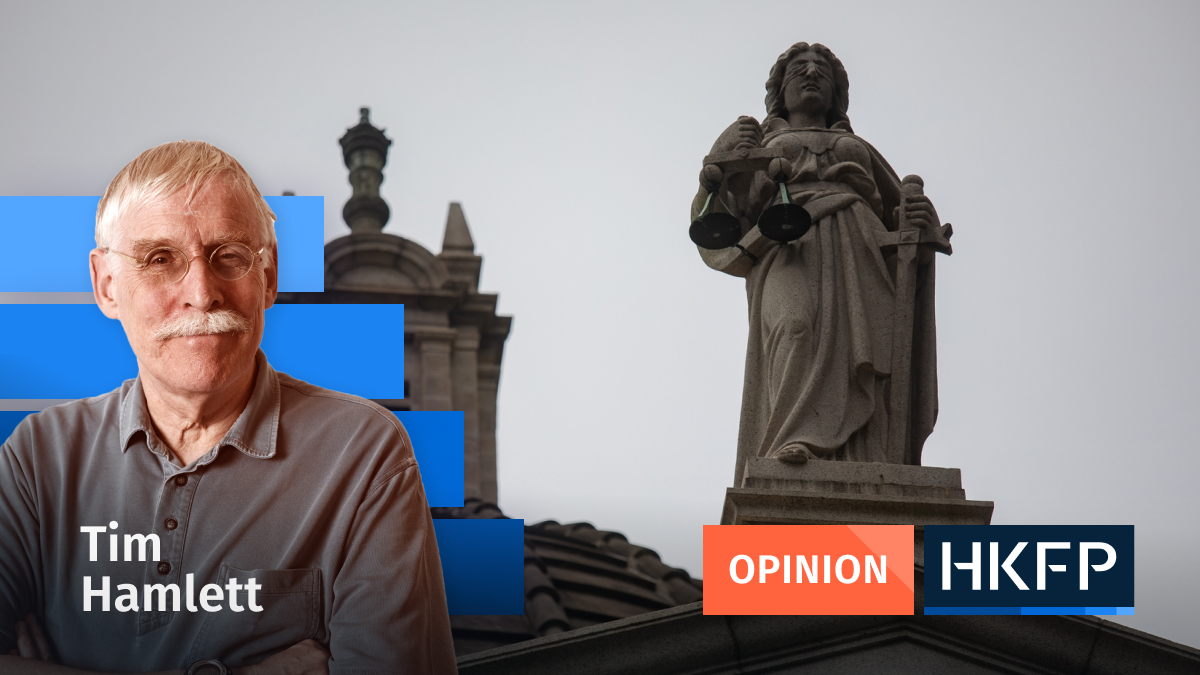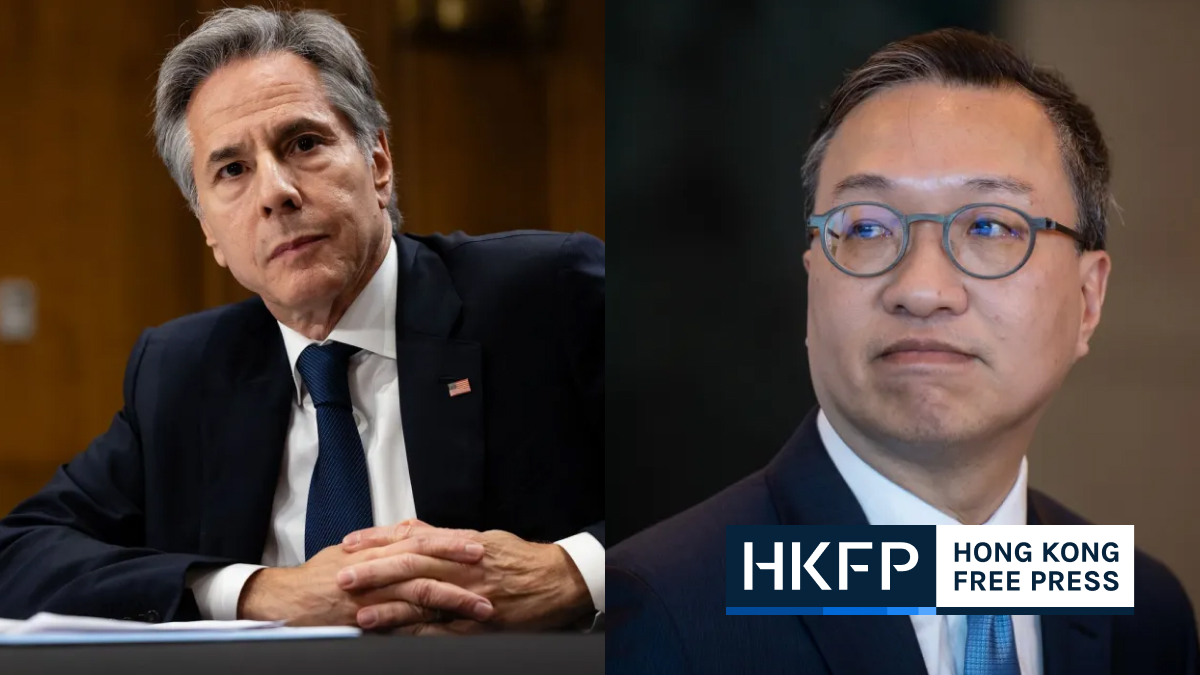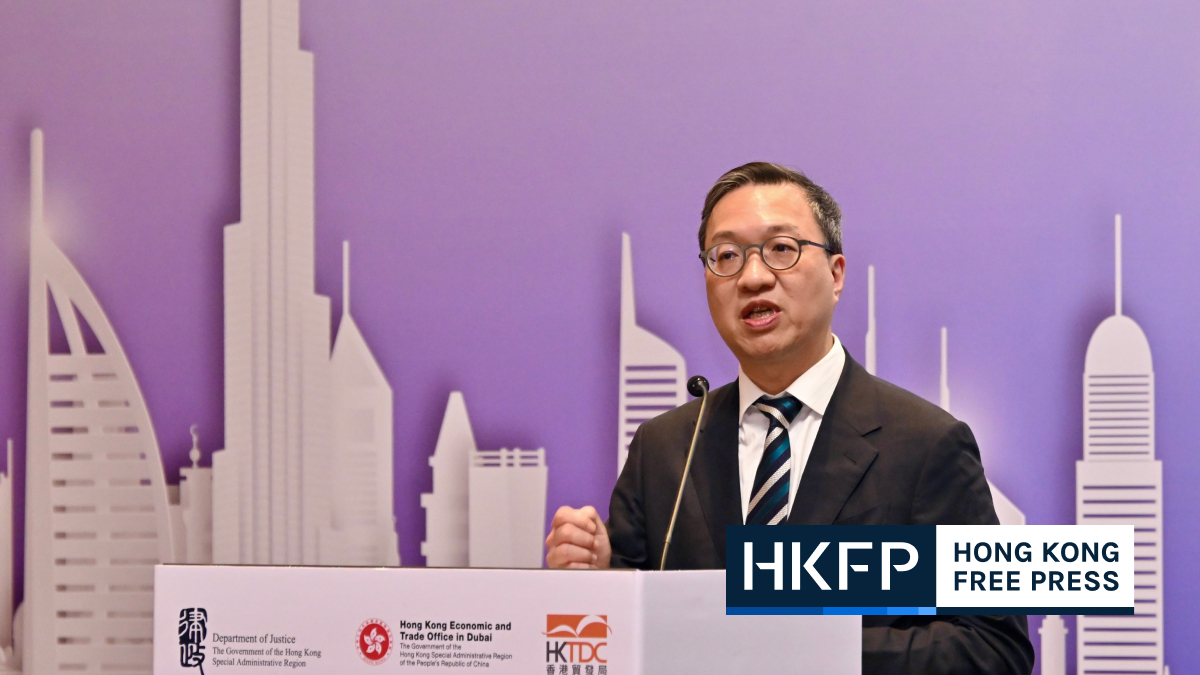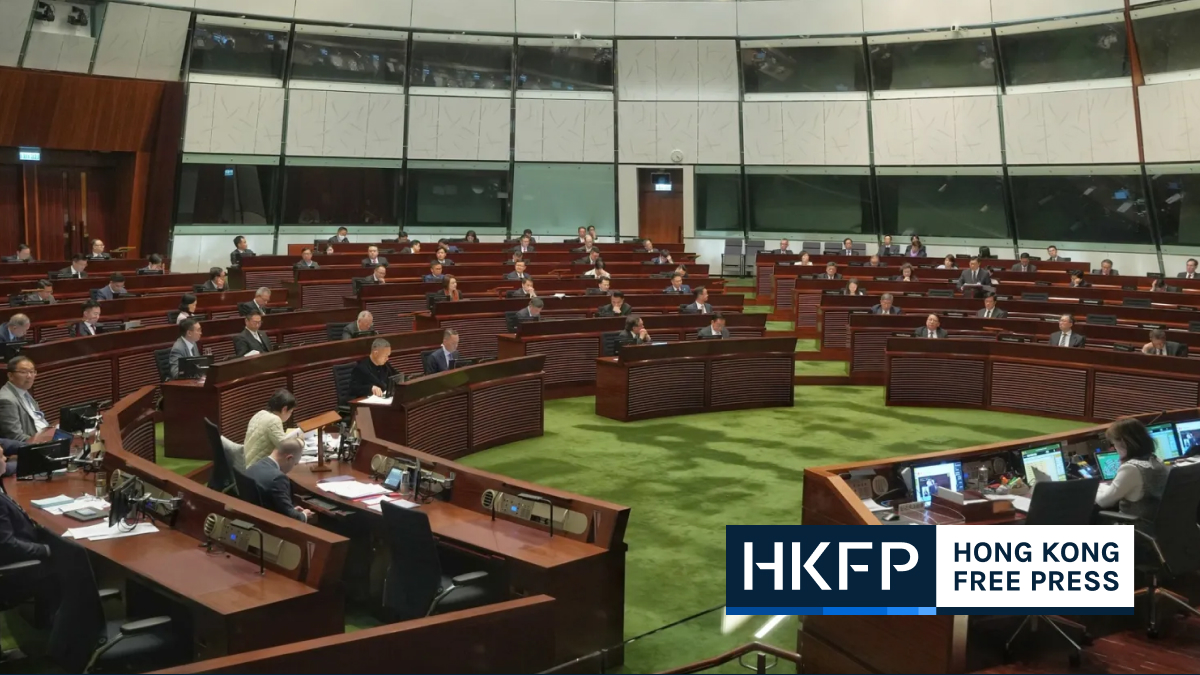A series of research studies related to the controversial protest slogan “Liberate Hong Kong, revolution of our times” – led by Hong Kong journalism scholar Francis Lee – were said to be “unreliable” and “irrelevant” by prosecutors at the city’s first-ever national security trial.
The high-profile case against 24-year-old Tong Ying-kit – tried by a three-judge panel in Hong Kong’s High Court – entered its 13th day on Wednesday. The activist is facing up to life imprisonment for his alleged offences of “incitement to secession” and “terrorist activities,” outlawed under the Beijing-imposed national security law.
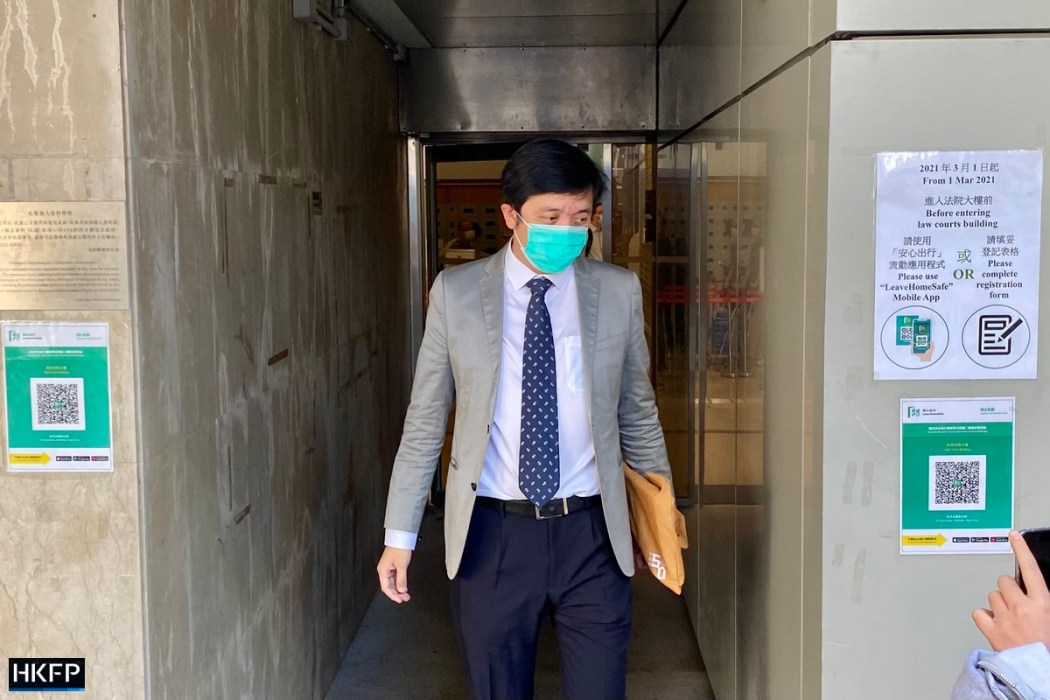
He became the first man in Hong Kong to be arrested and prosecuted under the legislation handed down by Beijing, after he allegedly rammed a motorcycle displaying a flag featuring the slogan into three police officers during a protest in Wan Chai last July 1.
As the 15-day trial entered its final days on Wednesday, the court continued with a cross-examination of the defence’s second expert witness Francis Lee, who is the director and a professor at the Chinese University’s School of Journalism and Communication.
Testifying in front of Madam Justices Esther Toh and Anthea Pang, and Justice Wilson Chan, Lee was asked to elaborate on the empirical data he used in penning a report for the defence together with politics and public administration scholar Eliza Lee from the University of Hong Kong.
The purpose of the document was to assist the court in understanding the meaning of the “Liberate Hong Kong” slogan, which the government says is banned for its “pro-independence, secessionist and subversion” implications.
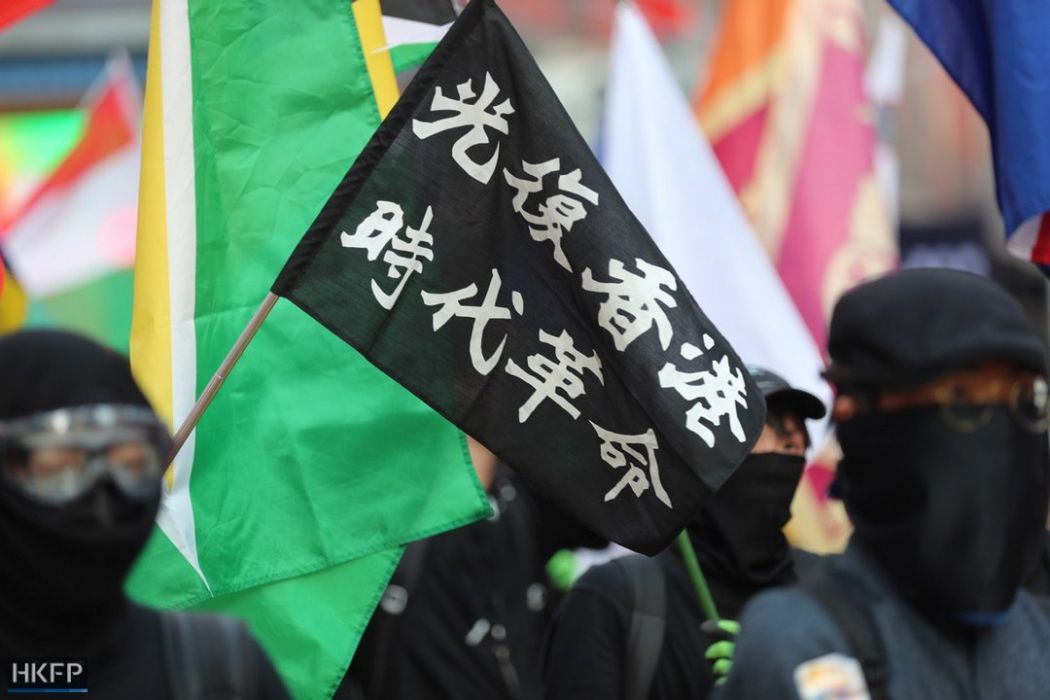
The CUHK scholar said the empirical data stemmed from five research studies he had conducted in relation to the 2019 anti-extradition bill protests. They included an examination of the comments and posts on local discussion forum LIHKG, a focus group study, onsite protest surveys, a telephone survey and a public discourse analysis.
Asked by the defence lawyer Lawrence Lau why multiple methods were adopted, Lee said the survey results would offer some understanding on the emergence and evolution of the slogan in question. Experts for the defence argued in their report that the slogan was “improvised” by former localist leader Edward Leung, and saw a rapid uptake after the Yuen Long mob attacks on July 21, 2019.
The other research methods were used to test a “key hypothesis,” Lee told the court, saying he wanted to conduct an empirical test upon the prosecution’s expert and history scholar Lau Chi-pang, who said the “Liberate Hong Kong” phrase was “raised necessarily for the objective of separating the HKSAR from the People’s Republic of China.”

“[The conclusion] has not yet been sufficiently tested in [Professor Lau’s] report. To test it adequately, it is indeed ideal to have multiple methods. In social sciences, we call it triangulation, to strengthen the robustness of the conclusion,” Lee said.
English translation
Barrister Lau asked if the word “liberate” was the most accurate translation of the Chinese slogan and whether the English version would affect people’s understanding of the phrase.
In response, Lee said while he did not think “liberate” was the most precise translation, though it was widely used by local and international English media when reporting on the 2019 protests and unrest. Most Hongkongers therefore would “just ignore the English version,” he said, adding that the English translation would only affect the understanding of the slogan by “opening up more interpretations.”
Survey timeline
Lee’s research studies were met with scepticism from prosecutor Anthony Chau. The acting deputy director of public prosecutions first challenged the timeline of the telephone survey and focus group study conducted in 2019, asking why the CUHK professor did not run a renewed inquiry after he was instructed by the defence to prepare a report in April this year.

Justice Wilson Chan interrupted and said it would be difficult for people to remember their thoughts from nine months ago. Lee agreed and said while the team could – in theory – do that, the data generated would not be reliable.
“There is something we could not travel back in time to do… if I ask people today what they think a year ago, you cannot treat that as a very reliable answer,” Lee said.
Keywords search on LIHKG
The prosecution then directed questions at Lee’s analysis of the content on popular discussion forum LIHKG, where the defence expert examined the the number of posts mentioned keywords such as “liberate Hong Kong,” “revolution of our times,” “Hong Kong independence” and “five demands.”
Chau asked why Lee did not include other phrases such as “Hong Kong nation,” “Hong Kong autonomy” and “Hongkongers, build a nation.” He also questioned whether there was an image search for the “Liberate Hong Kong” flag and the British colonial flag.
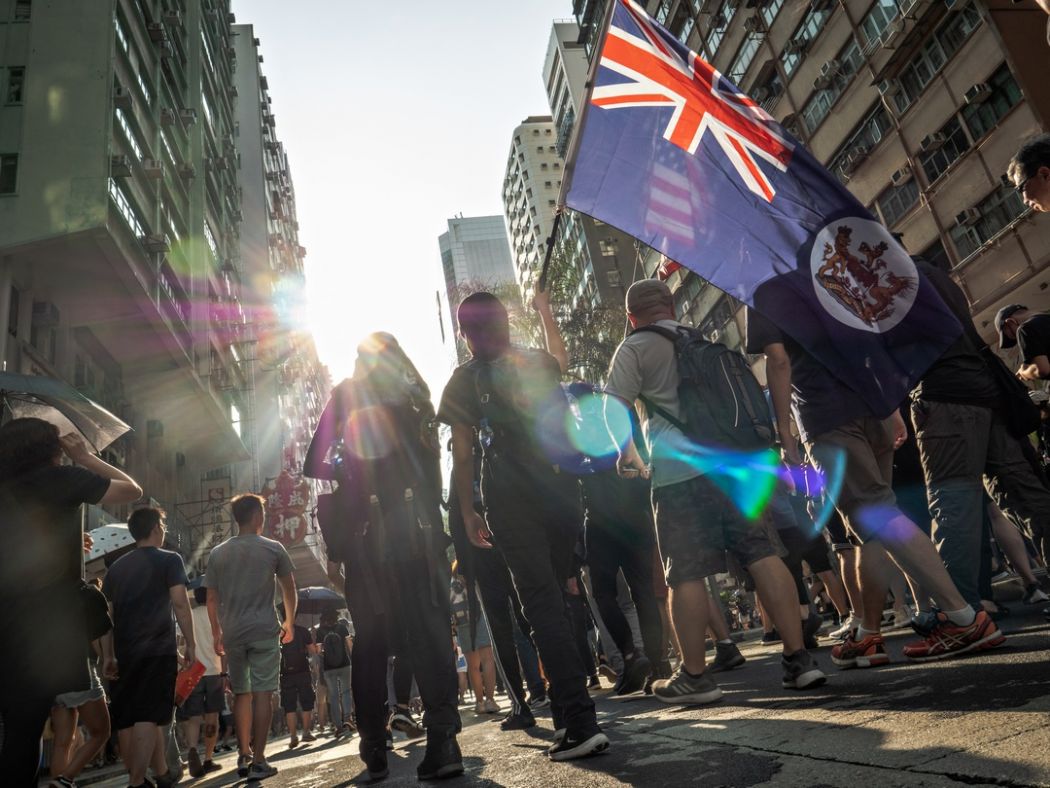
The journalism professor admitted the computer coding he used could not account for the visuals mentioned by Chau, but he said such an exclusion would not “affect the logic of the analysis.”
Interviewers’ stance
After the lunch break, prosecutor Chau continued to press Lee on the credibility of his research. He turned to the focus group study, which involved 40 participants who supported the months-long pro-democracy movement in 2019.
Chau submitted transcripts from the group discussions, as well as a discussion guide given to research assistants. He said the documents showed that interviewers who guided the conversation had a “built-in stance,” as some expressed opinions about Hong Kong independence and their interpretation of the word “revolution.”
Lee defended his study and said what the interviewers mentioned in the discussion was “part of the conversation flow.” He said research assistants may raise a “leading question” to lead the participants to talk about a particular topic.
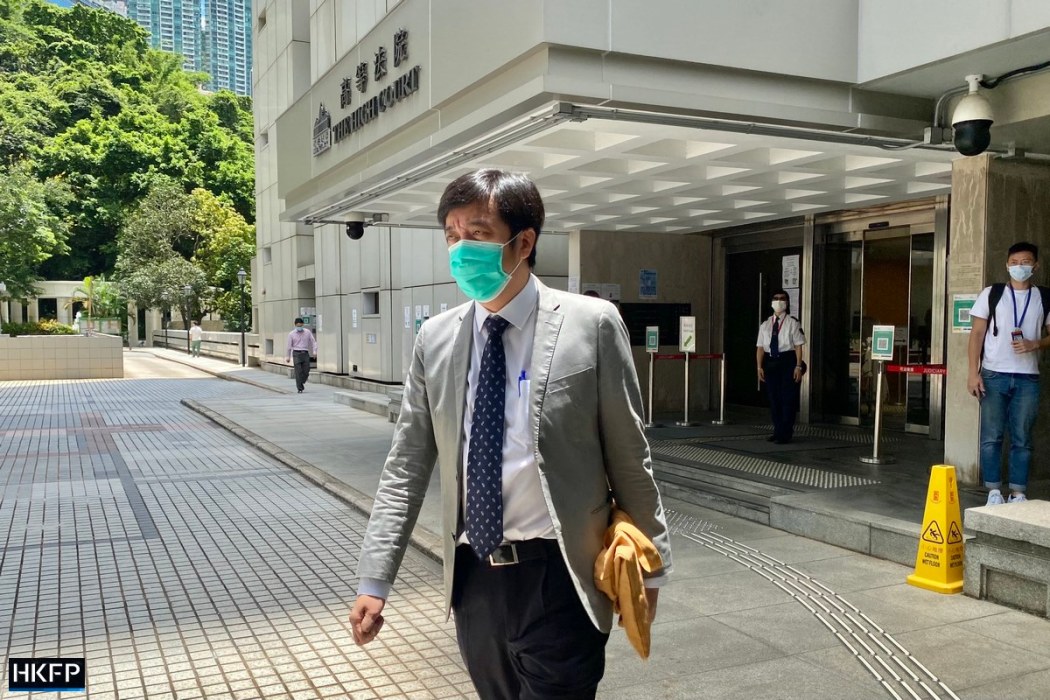
“No matter what the interviewer said, the discussion is an open-ended discussion… it is perfectly acceptable to try to offer some opinions to lead the participants thinking, without forcing them to say A, B or C,” he said.
Police approach
The prosecution continued to grill Lee about his research approach, drawing comparisons to a police research project led by Senior Inspector Eddie Cheung. Cheung and his team counted the number of times the “Liberate Hong Kong” slogan appeared in protest-related activities by reviewing over 2,000 videos. They concluded that the use of the eight-word slogan was associated with Hong Kong independence and other political agendas hostile to China and Hong Kong.
The police analysis was also adopted by Professor Lau of Lingnan University, who argued the phrase in question denoted a refusal to admit that Hong Kong was part of China and seeing Beijing as an “enemy.”
Asked by Chau whether he thought Lau’s interpretation of the slogan was correct, Lee said he would not say if it was correct or not, because there was “no single correct interpretation.”

The prosecutor followed up by asking whether police research approach was “more reliable” than the one adopted by Lee, the CUHK scholar giggled and replied: “Of course not.”
Lee elaborated and said he did not challenge whether police knew “how to count things,” what he was challenging was what the data represented.
Chau told Lee that the prosecutor thought his research approach was “unreliable and irrelevant,” though the academic immediately countered and said his work was reliable and was up to standard.
The trial ended at 4.30 pm. Lee will appear in court again on Thursday morning for a re-examination by the defence.
Support HKFP | Policies & Ethics | Error/typo? | Contact Us | Newsletter | Transparency & Annual Report | Apps
Help safeguard press freedom & keep HKFP free for all readers by supporting our team





















